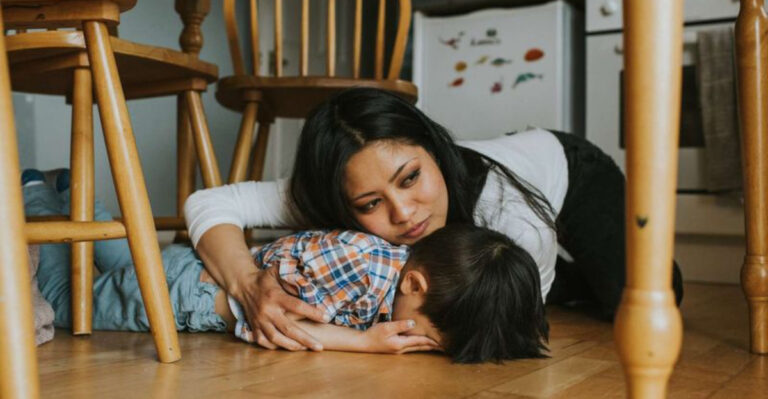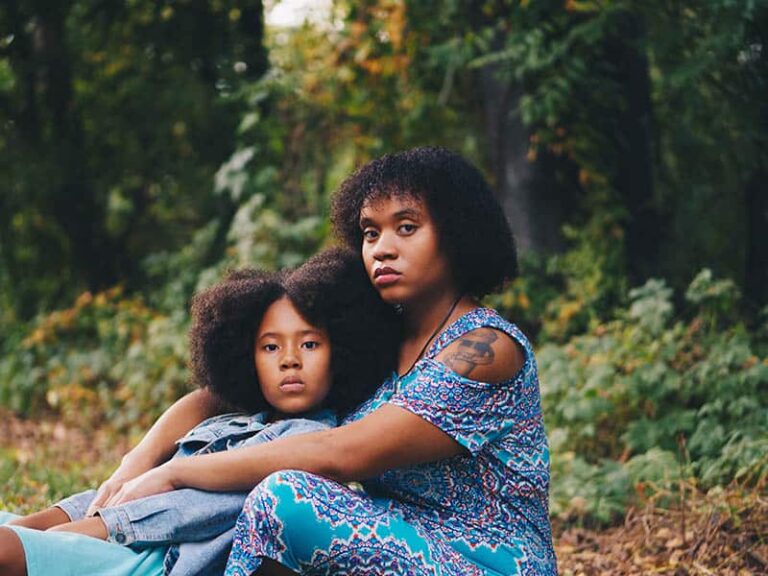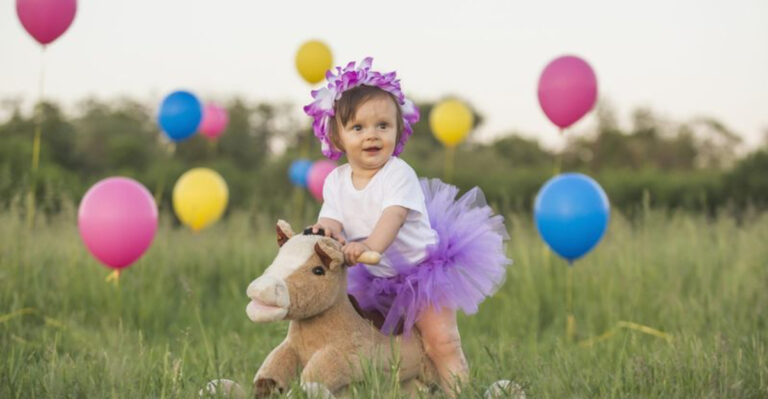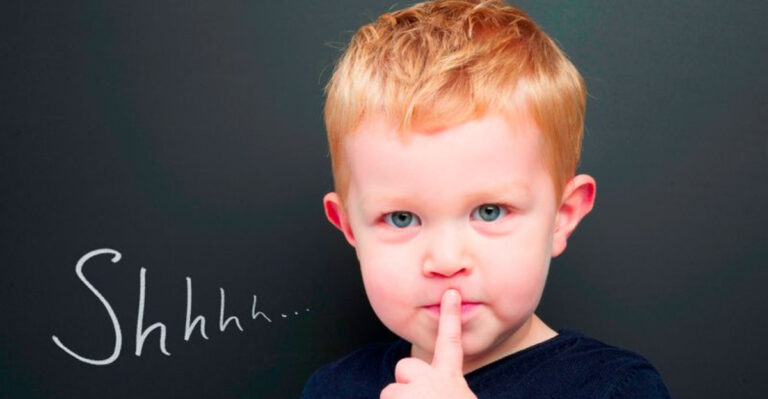32 Ways Growing Up Without Emotional Support Can Still Affect You as an Adult
Some wounds don’t show up as scars. They show up as silence. Overthinking. People-pleasing. Struggling to ask for help. When you grow up without emotional support—without warmth, attunement, or safety—it doesn’t just disappear when you turn 18.
It follows you into adulthood, quietly shaping your relationships, self-worth, and sense of belonging. You might look “high-functioning” on the outside. But inside? You’re still learning how to give yourself what you never received.
Here are 32 very real ways growing up without emotional support still affects you today—not to shame, but to help you recognize, reflect, and heal.
1. You constantly second-guess your feelings.
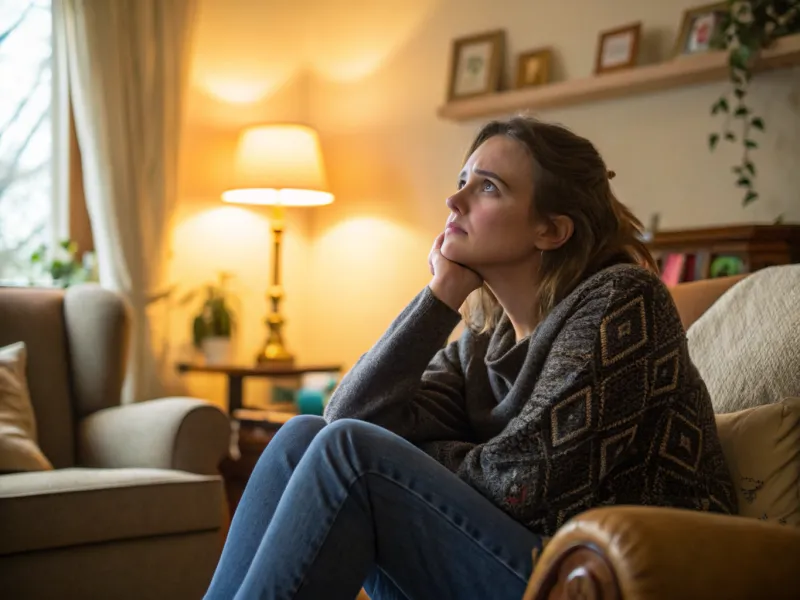
Because no one ever taught you they were valid. In the silence of your childhood, you learned to doubt your inner voice. It feels like every decision needs external validation. You seek approval, fearing your own judgment might betray you.
Growing up without emotional support didn’t just make you question your emotions—it made you question yourself. Every feeling seems like an uninvited guest, and acknowledging it feels like a risk. This ongoing battle within your mind creates a constant state of unease. Trusting your instincts becomes a mountain you climb daily, each step an act of courage.
2. You struggle to identify what you need—let alone ask for it.
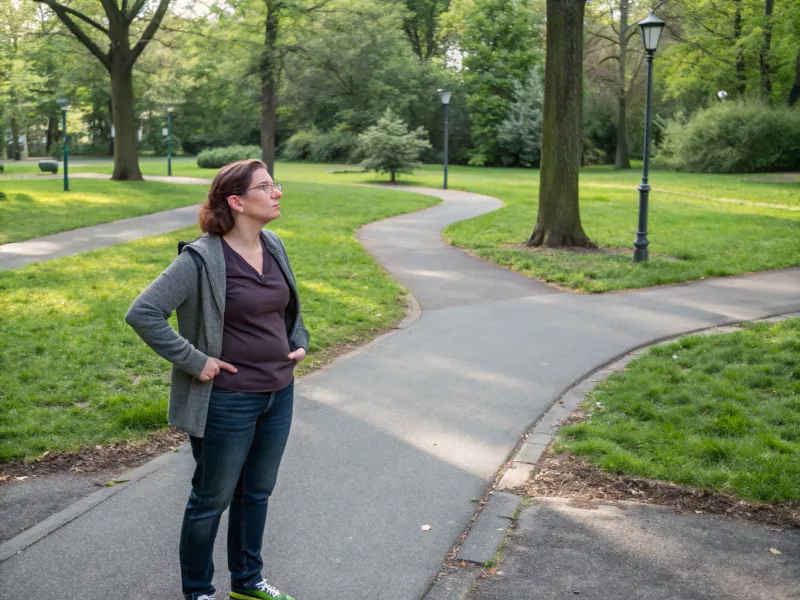
Emotional neglect taught you to disconnect from your inner world. As a child, your needs were perhaps seen as burdens, whispers in a noisy world. Now, as an adult, identifying your needs feels like unearthing buried treasures. Asking for help? That’s a different realm.
It feels like exposing yourself to a world that’s always been indifferent. The struggle isn’t just about needs—it’s about finding your voice, understanding your worth, and daring to be seen. Every step towards asking for what you need feels like reclaiming lost parts of yourself, even if they’re covered in dust and doubt.
3. You feel guilty for resting, crying, or needing comfort.

You learned to survive—not to soften. Growing up, emotions were perhaps seen as weaknesses, vulnerabilities to be hidden away. Now, in moments where comfort calls, guilt sneaks in like an uninvited guest. Resting feels like a betrayal to the invisible hustle instilled in you.
Crying? That’s another enemy, a sign of fragility you were taught to avoid. Needing comfort is a foreign concept, something that feels borrowed rather than yours. To embrace rest and comfort is to challenge years of conditioned beliefs, a gentle rebellion that whispers you are worthy of peace.
4. You’re hyper-independent—even when you’re drowning.
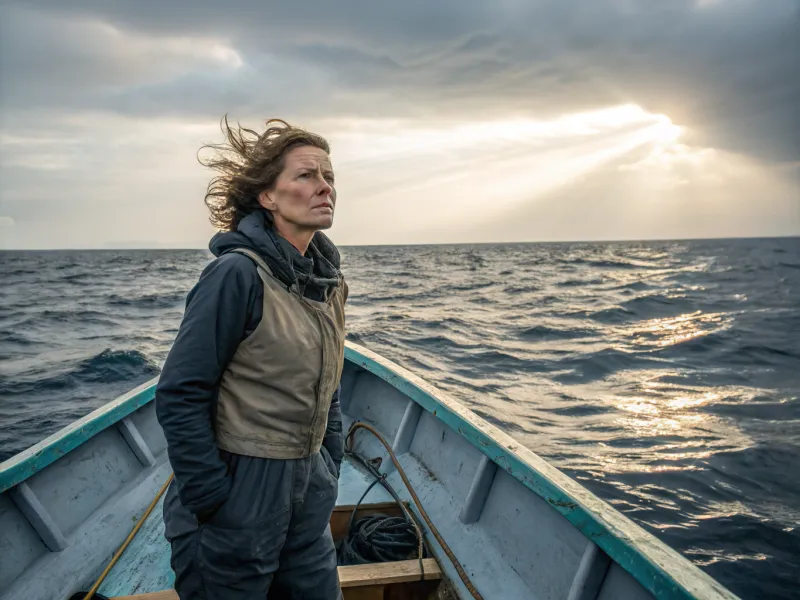
Because asking for help once meant disappointment or rejection. Independence became your armor, a shield against a world that taught you to rely on no one but yourself. Even as the waves of life threaten to engulf you, admitting you’re drowning feels like a weakness.
This hyper-independence is both a refuge and a prison, a testament to the resilience forged in solitude. But beneath this strength lies exhaustion, a longing to share the burden without the fear of being let down. To lower this shield means trusting that vulnerability won’t lead to abandonment.
5. You criticize yourself more than anyone else ever could.

That voice? It’s the echo of what you didn’t hear: encouragement, compassion, belief. In the absence of emotional support, you became your harshest critic. Self-criticism became the language of survival, a way to police your own actions in a world that never seemed satisfied.
Every mistake feels amplified, every success diminished by the relentless whisper that you’re never enough. Self-criticism isn’t just a habit—it’s a legacy of what you lacked, a void filled with words that wound rather than heal. Learning to silence this voice is a journey towards finally believing in your own worth.
6. You feel like a burden for simply existing.
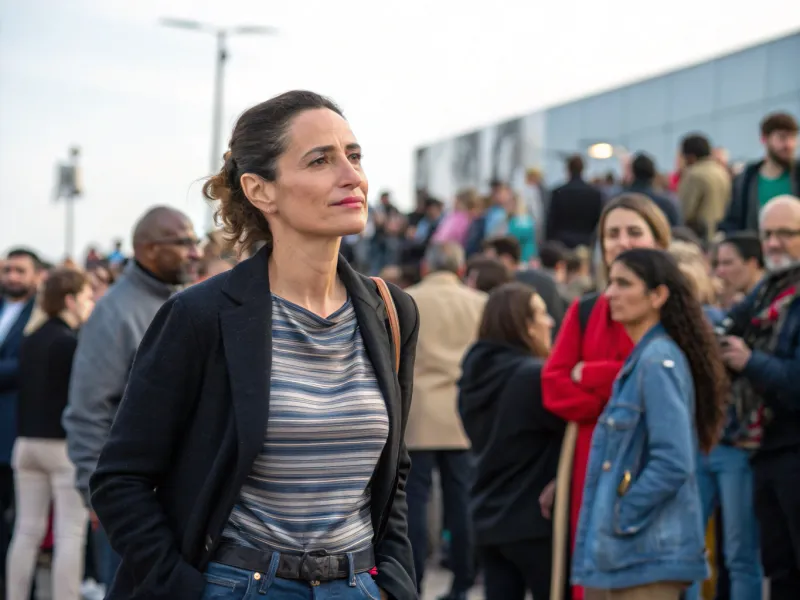
Even when people love you—you still struggle to believe it. Growing up without emotional support, you internalized the belief that your presence was an inconvenience. Every interaction feels like a negotiation, a careful dance to avoid imposing on others.
Deep-rooted feeling of being a burden is hard to shake, even in the face of love and acceptance. It’s as if your existence comes with a disclaimer, a constant need to prove your right to occupy space. Unlearning this belief means daring to believe that you are not just tolerated, but truly wanted and cherished.
7. You struggle with low self-worth—no matter how much you achieve.
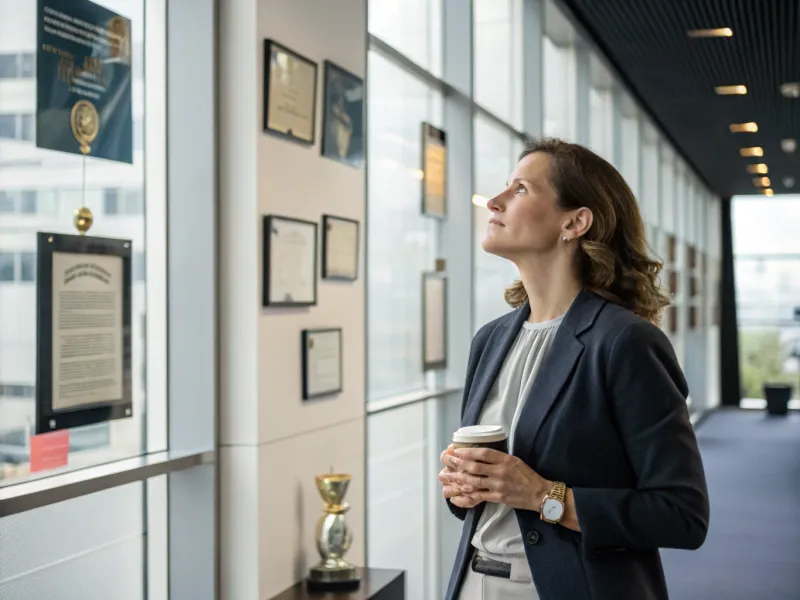
Because no amount of success fills that original emotional gap. Accomplishments become band-aids on wounds that need deeper healing. Despite external validation, the core belief of unworthiness lingers, whispering beneath every triumph.
Growing up without emotional support planted seeds of doubt that flourish in the shadows of achievement. Each milestone becomes a fleeting reassurance, never quite reaching the heart of the matter. True self-worth remains elusive, hidden beneath layers of accolades that fail to touch the truth of who you are. Finding it requires peeling back these layers to embrace your intrinsic value.
8. You feel uncomfortable with praise or positive attention.
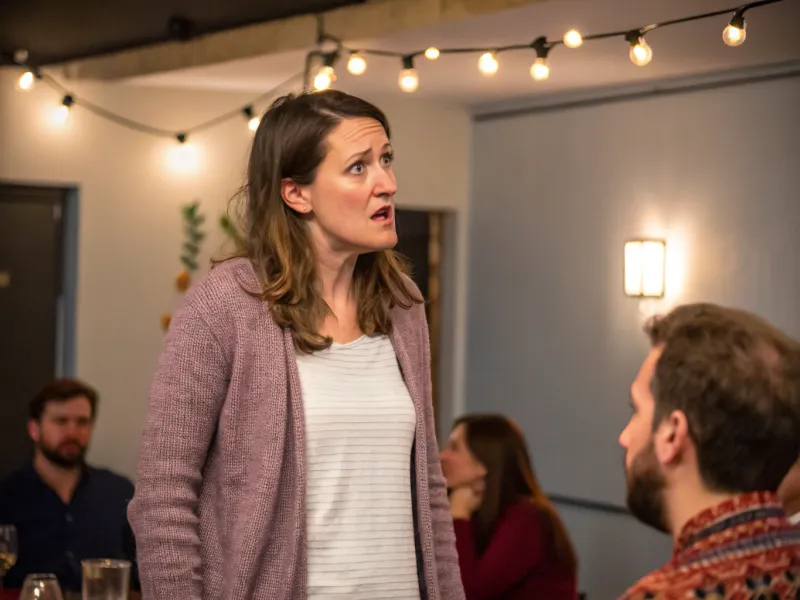
It feels unfamiliar, even suspicious. Praise becomes a spotlight you’d rather avoid, a reminder of the validation you didn’t grow up receiving. Positive attention feels like an echo in an empty room, both enticing and unsettling. You question its sincerity, bracing for the inevitable criticism that feels more familiar.
This discomfort stems from a history where compliments were scarce, leaving you unsure of how to accept them. Learning to receive praise without skepticism is about rewriting narratives, allowing yourself to bask in genuine appreciation without the shadow of doubt.
9. You either over-express or suppress your emotions.
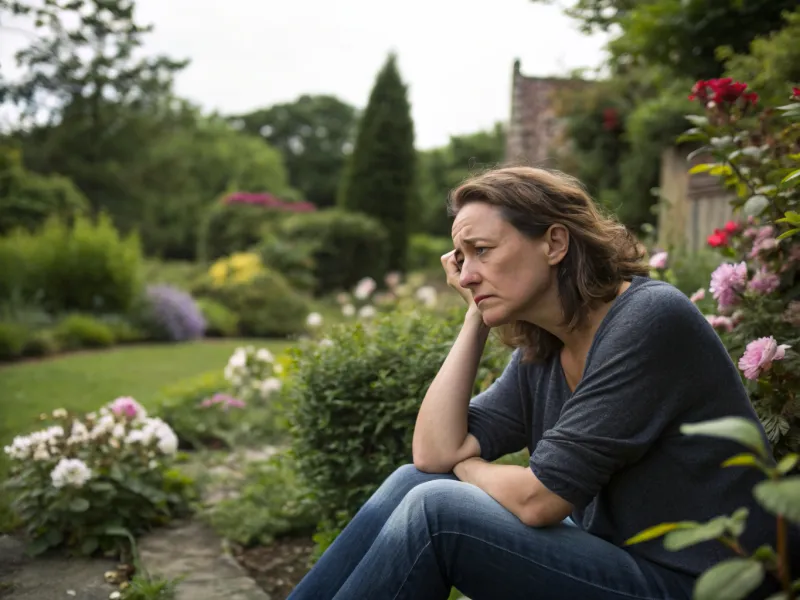
Because you never learned how to be emotionally safe in the middle. Emotional extremes became your survival strategy, a way to navigate a world without adequate support. Over-expression is an attempt to be seen, heard, and validated, while suppression is about maintaining control and avoiding vulnerability.
Oscillation creates an inner chaos, a pendulum swinging between too much and too little. Finding emotional safety means discovering balance, where feelings can be acknowledged without overwhelming or being withheld. It’s about finding the middle ground where emotions can breathe without fear.
10. You feel like you’re “too much” and “not enough” at the same time.
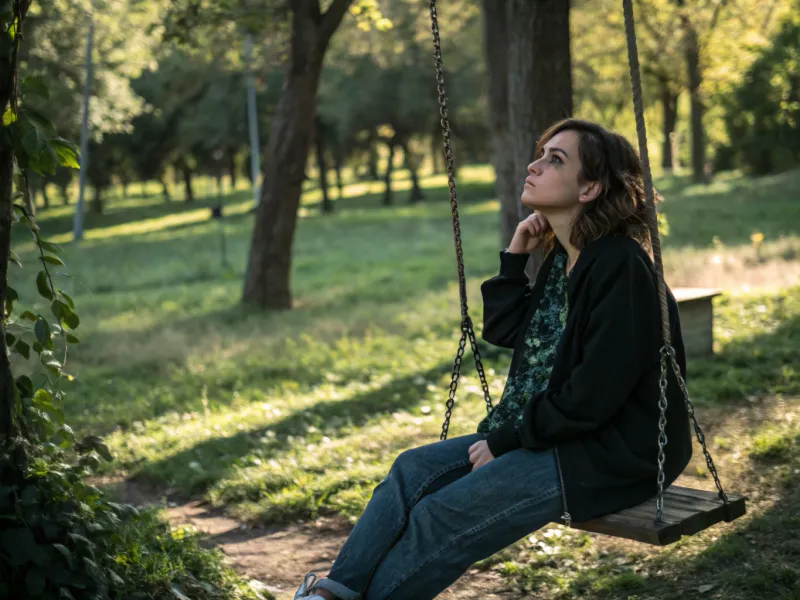
A confusing, painful loop. Growing up without emotional support, you learned to live in these extremes, where nothing ever seemed just right. It’s the constant tug-of-war between being overwhelming yet inadequate, a dichotomy that leaves you perpetually off-balance.
Duality creates a narrative where self-acceptance feels like an elusive dream. Navigating this space means learning to embrace both parts of yourself, recognizing that being “too much” or “not enough” are stories, not truths. It’s about finding harmony within yourself, where you can be fully present and perfectly imperfect.
11. You struggle to trust people with your vulnerability.

Emotional safety was never modeled—so you hold it all in. Trusting someone with your deepest feelings feels like handing over a delicate part of yourself, one that could shatter if mishandled. Growing up without emotional support, you learned to guard your vulnerability closely, a fortress built on past disappointments.
This struggle isn’t just about trust—it’s about the fear of being let down, betrayed by those you dared to open up to. Allowing yourself to be vulnerable means risking the very thing you’ve been taught to protect. But it’s also the path to deeper connections and healing.
12. You gravitate toward emotionally unavailable partners.

Familiar dysfunction can feel like “chemistry.” Growing up without emotional support, emotionally unavailable relationships become a replay of past dynamics. It’s a dance you know, familiar yet unfulfilling. This gravitation isn’t about choice—it’s an unconscious pull towards what you know, even if it hurts.
Finding yourself in these relationships feels like trying to ignite a flame with wet matches, always seeking warmth that never comes. Breaking this pattern means recognizing your worth, daring to disrupt the cycle, and choosing partners who are present, attentive, and capable of genuine connection.
13. You don’t know how to receive love—only how to give it.

Because being needed once felt like the only way to be loved. Receiving love feels like uncharted territory, a landscape where you’ve only ever been a giver. Growing up without emotional support taught you that love was conditional, something earned through service and sacrifice.
This belief becomes a barrier to accepting love freely, a wall that divides you from true intimacy. Learning to receive love means recognizing that you are deserving, not because of what you do, but because of who you are. It’s about allowing yourself to be nurtured and cherished without the need to reciprocate immediately.
14. You stay quiet to keep the peace—even when it hurts you.

Conflict once meant danger, not growth. Silence became your shield, a way to diffuse potential discord before it erupted. Growing up without emotional support, speaking up felt like walking through a minefield, where every word could trigger chaos. The need for peace at all costs comes with a price—your own voice, your own needs.
Staying quiet to keep the peace isn’t harmony; it’s self-erasure. Finding your voice means challenging the silence, daring to disrupt the calm with truth, and believing that your words are worthy of being heard and respected.
15. You take on a fixer or caretaker role in every relationship.
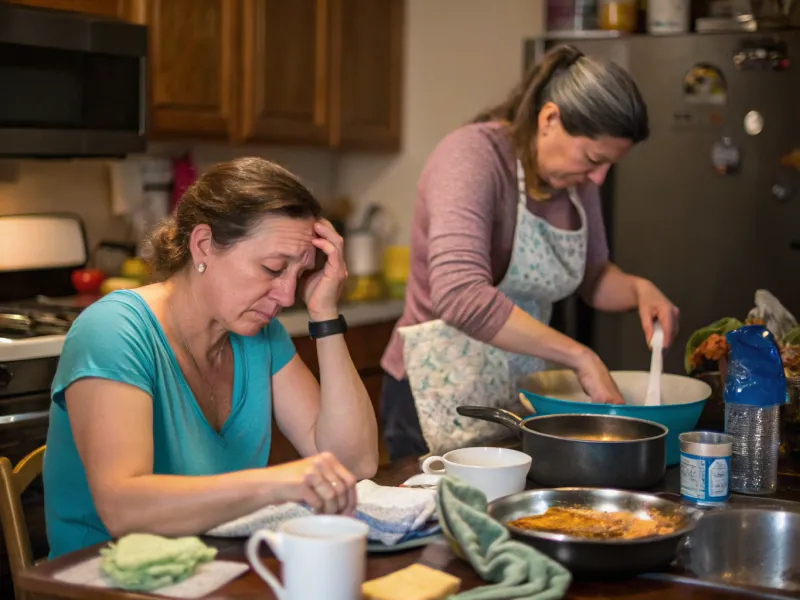
If you’re not useful, you fear being left. Growing up without emotional support, you learned that value was tied to service, an unspoken contract where care equaled worth. This role becomes a familiar refuge, a way to validate your existence in relationships.
But the fixer role is exhausting, a cycle that leaves little room for your own needs. It’s a role that reinforces the belief that love is earned, not freely given. Breaking free means acknowledging your inherent worth, daring to be loved for who you are, not what you do. It’s about allowing yourself to receive, not just give.
16. You fear abandonment deeply—even when no one’s leaving.
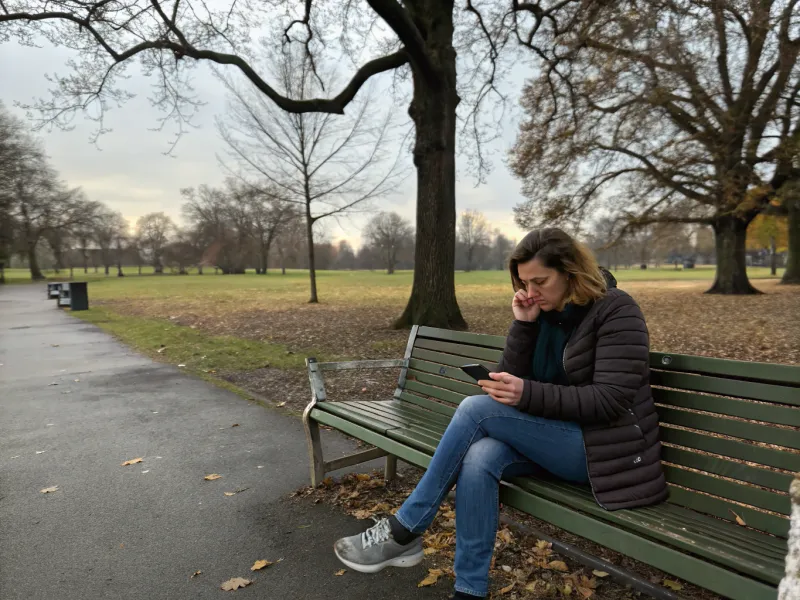
Because emotional absence once was abandonment. The fear of being left behind haunts your steps, a shadow that lingers even in secure relationships. Growing up without emotional support, abandonment became a familiar ache, a reminder that love could vanish without warning.
Fear creates an anxious attachment, where reassurance feels like a lifeline in an unpredictable world. Navigating this fear means understanding that not everyone will leave, that love can be constant and unwavering. It’s about finding security within yourself, trusting in your worth and the steadfastness of those who choose to stay.
17. You struggle to set healthy boundaries.
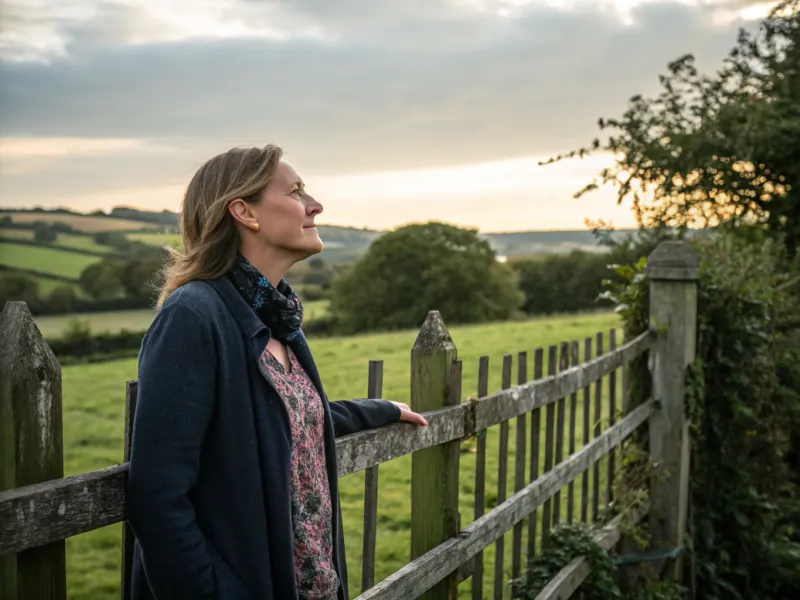
You were trained to put others first—always. Growing up without emotional support, boundaries were blurred, non-existent, or crossed without regard. This lack of boundaries creates a life where saying no feels like betrayal, where self-sacrifice becomes second nature.
Setting healthy boundaries means reclaiming your space, defining your limits, and understanding that it’s okay to prioritize yourself. It’s about learning to say no without guilt, to create a life that respects your needs as much as others’. This journey is about finding balance, where boundaries become bridges to healthier relationships, not barriers of isolation.
18. You don’t know how to emotionally “lean” on others.

You’re the strong one. The silent one. The one who never needs. Growing up without emotional support, leaning on others feels foreign, a sign of weakness rather than strength. You learned to rely on yourself, to navigate life’s challenges in solitude. But carrying everything alone is exhausting, a burden that grows heavier with time.
Learning to lean on others means redefining strength, understanding that vulnerability is not a flaw but a bridge to deeper connections. It’s about allowing yourself to be supported, to trust that others can hold you without judgment or expectation.
19. You overthink your texts, tone, and timing.

Because connection always felt conditional. Every word, every message becomes a puzzle, a game of chess where you anticipate reactions before taking the first move. Growing up without emotional support meant that connection was fragile, a balancing act where one misstep could mean being misunderstood or rejected.
Overthinking becomes a protective mechanism, a way to maintain control in uncertain dynamics. But this hyper-awareness is exhausting, a cycle that steals joy from simple interactions. Finding freedom means embracing authenticity, trusting that genuine connection doesn’t require perfection, just honest intention.
20. You stay in relationships longer than you should—just to avoid feeling “too alone.”
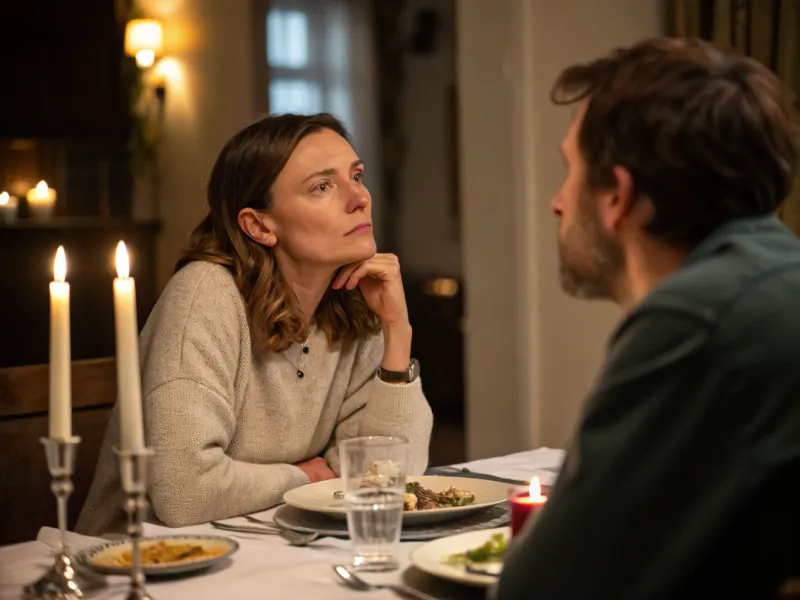
Even if you’re lonely inside them. Growing up without emotional support, you learned to accept crumbs of affection, believing they were enough. Leaving a relationship feels daunting, as if stepping into an abyss of loneliness you’ve always feared. Staying becomes a comfort zone, a way to avoid the emptiness you’ve known too well.
But prolonging the inevitable means sacrificing your own happiness, settling for less than you deserve. This journey is about daring to embrace solitude, understanding that being alone doesn’t mean being lonely. It’s about choosing yourself, even when it feels like walking into the unknown.
21. You replay conversations for hours after they’re over.

Worried you said the wrong thing, again. Every interaction becomes a mental replay, a highlight reel of potential missteps and misunderstood intentions. Growing up without emotional support, conversations felt like performance art, where the stakes were high and the feedback often silent.
The need to dissect every dialogue stems from a fear of rejection, a desire for validation and acceptance. But this endless loop is exhausting, a mental marathon that never ends. Finding peace means accepting imperfections, trusting that true connections withstand minor mistakes, and that your words, though not always perfect, are enough.
22. You get emotionally overwhelmed easily—but hide it well.

Decades of repression don’t just vanish. On the outside, you seem composed, the picture of calm amidst chaos. But inside, emotions swirl like a tempest, threatening to spill over. Growing up without emotional support taught you to conceal your feelings, to present a façade of strength even when you’re crumbling.
Emotional overwhelm is a silent scream, a cry for understanding and connection. Hiding it becomes second nature, a skill mastered over years. Finding release means daring to let the storm out, trusting that those who care will dance with you in the rain, not leave you out in the cold.
23. You feel like you have to earn love, safety, or rest.

Resting feels indulgent. Emotional needs feel selfish. Growing up without emotional support taught you that nothing came without a price, that love and care were rewards for contorting yourself into others’ expectations. This belief becomes a relentless pursuit, a marathon of earning what should be freely given.
The idea of resting feels rebellious, a step into a luxury you were told wasn’t yours. But love, safety, and rest are not prizes—they are birthrights. Learning to embrace them without justification means rewriting the rules, daring to stop chasing and simply be, knowing you are enough just as you are.
24. You avoid asking for help—even when it costs you.
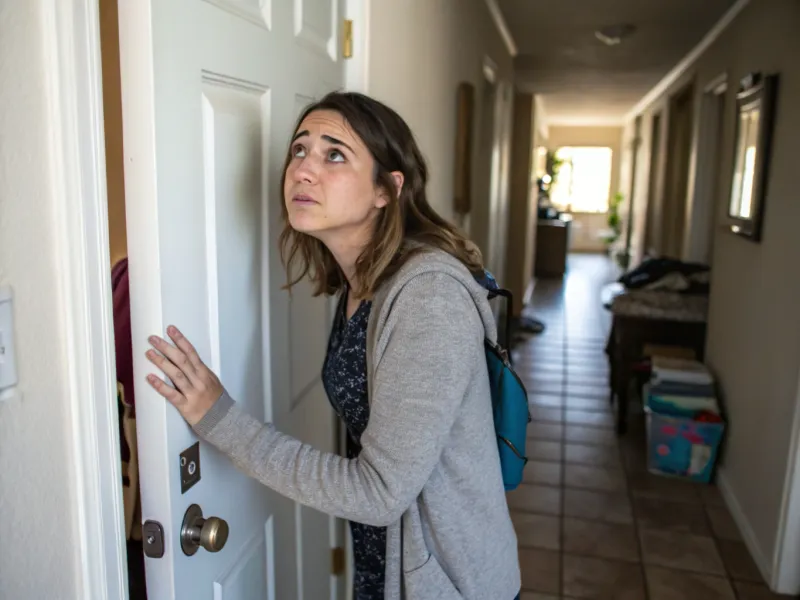
Because vulnerability still feels dangerous. Asking for help is like standing at the edge of a cliff, unsure if the leap will lead to support or a fall. Growing up without emotional support, you learned that asking for help often led to disappointment or judgment.
Reluctance isn’t just about independence—it’s about safeguarding your heart from potential pain. But avoiding help comes at a cost, a burden too heavy to carry alone. Finding courage means trusting that vulnerability is not a weakness but a strength, a bridge to connection, and a step towards healing and growth.
25. You struggle to relax around people—always reading the room.
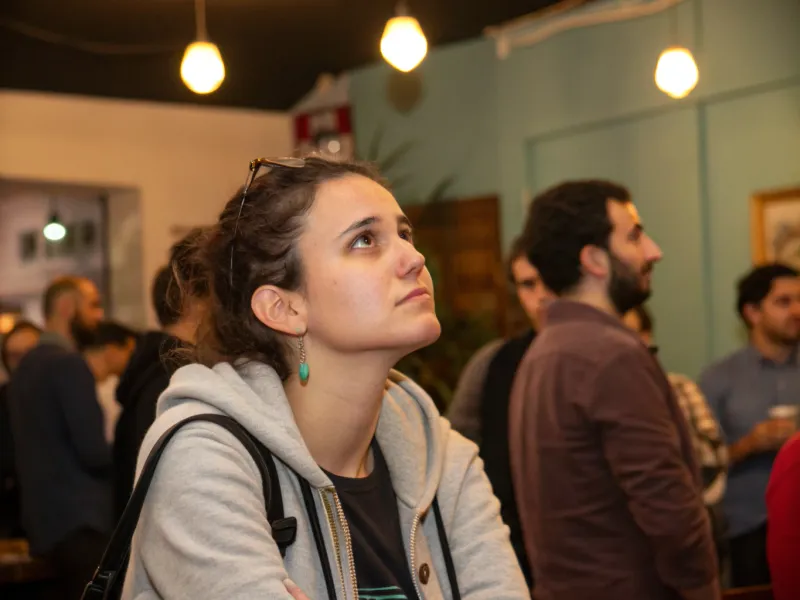
Hyper-awareness is a trauma response. Growing up without emotional support, you became the observer, the one who reads the room before stepping in. This vigilance is a survival mechanism, a way to predict and prevent conflict or disappointment. But it comes with a cost—an inability to fully relax and be present.
Always assessing, always on guard, you miss the joy of genuine connection. Finding peace means letting go of the need to control every interaction, trusting that not every room is a battlefield. It’s about allowing yourself to simply be, without the weight of constant vigilance.
26. You self-soothe in quiet, subtle ways no one sees.

Overeating. Overworking. Overthinking. These are the silent lullabies you sing to yourself, ways to fill the void left by a lack of emotional support. Self-soothing becomes a secret ritual, one that provides comfort in solitude. It’s the quiet moments where you find respite, away from the demands of the world.
But these habits, though soothing, can sometimes become chains, binding you to a cycle of escape rather than healing. Finding balance means creating new rituals, ones that nurture rather than numb, that celebrate yourself rather than hide your pain.
27. You crave connection—but fear what it might cost.

Because love once came with strings, shame, or silence. Connection is a double-edged sword, a longing for closeness tempered by the fear of entanglement. Growing up without emotional support taught you that love often comes with hidden costs, a burden you’re cautious to incur again.
Fear creates a push-pull dynamic, where you reach for connection but retreat at the first sign of potential pain. Finding peace means daring to embrace connection without fear, trusting that it can be nurturing and unconditional. It’s about opening your heart to possibilities, believing that love can be a sanctuary, not a snare.
28. You don’t fully know what emotional safety feels like.

But you’re learning. Slowly. Bravely. Emotional safety is a foreign concept, a warmth you’re only beginning to discover. Growing up without emotional support, safety felt like an illusion, something fragile and fleeting. Now, as you navigate adult relationships, you’re redefining what safety means, daring to trust that it’s real and attainable.
The journey is about creating spaces where you can be yourself without fear, where your heart can rest without armor. It’s about finding peace within, where you can cherish the moments of calm and build a life that nurtures your emotional well-being.
29. You apologize for things that aren’t your fault.

Because you were made to feel responsible for other people’s feelings. Apologies became your default setting, a way to preempt conflict and maintain harmony. Growing up without emotional support, you learned to shoulder blame to keep the peace, believing that being sorry was your role to play.
This habit becomes a reflex, an instinct to smooth over situations even when you’ve done nothing wrong. Finding empowerment means recognizing your boundaries, understanding that not everything is your responsibility to fix. It’s about learning to stand tall, to speak your truth without defaulting to unnecessary apologies.
30. You’re only now realizing how much you’ve survived.

And that realization? Is everything. Growing up without emotional support, survival became second nature, a skill honed in the quiet battles of your heart. Now, as you look back, you see the strength it took to navigate a world without the nurturing presence you needed.
Awareness isn’t just about acknowledging the past—it’s about celebrating the resilience that brought you here, the courage that carried you through. Realizing your own survival is a revelation, a reminder of your worth and the potential within you. It’s about embracing the journey, honoring the scars, and stepping boldly into a future where you define your own support and love.
31. You Have a Difficulty Celebrating Your Achievements

Imagine achieving a lifelong goal yet feeling an unsettling emptiness rather than joy. Many adults who grew up without emotional support struggle to celebrate their successes. The absence of validation during formative years often leads to an internal voice that questions their worthiness of success.
This can manifest as an inability to feel proud or satisfied with personal accomplishments. Over time, this diminishes the joy and satisfaction that should naturally accompany success, leaving achievements feeling hollow and unfulfilled. The struggle to accept praise or revel in one’s own milestones becomes a quiet, ongoing battle.
32. You Find Comfort in Routine, Even When It’s Limiting
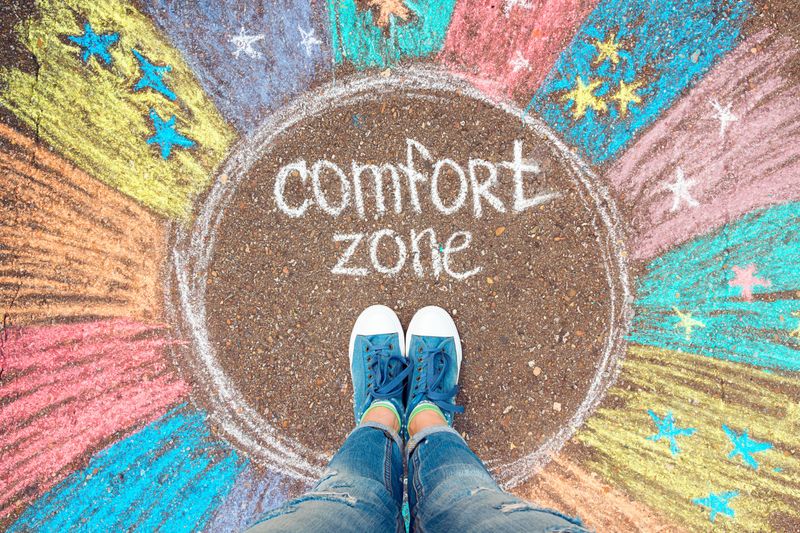
Routine can provide a sense of safety, but for some, it becomes a restrictive comfort zone. Growing up without emotional support, many find solace in predictability, fearing the chaos that change might bring.
This often leads to a reluctance to step out of familiar patterns, even if they are no longer beneficial. While routine offers stability, it can also stifle growth and limit exposure to new experiences. The comfort of routine becomes a double-edged sword, offering safety at the cost of personal evolution and exploration.


